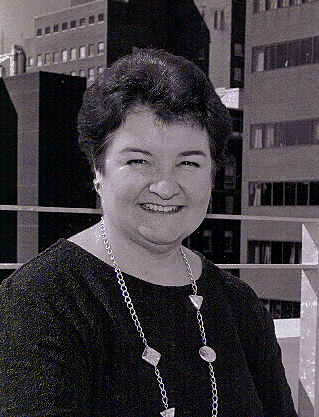
 High-tech help for surgeons
High-tech help for surgeons
Picture the operating room of the future: Before a single
incision is made, the surgeon uses a customized
computer-generated model of the patient to help diagnose the
condition needing treatment, to evaluate treatment options and to
rehearse a personalized surgical plan.
When the real operation begins, a computer
combines this information with three-dimensional medical images
and displays the surgical plan, overlaid on the patient. Robotic
devices augment the surgeon's own hand-eye coordination to help
carry out the procedure exactly as planned.
With this electronic help, the surgery could be
safer and more precise, yet less costly. And the patient would
recover more quickly.
To help realize this goal, the National Science
Foundation this month began a $12.9-million five-year cooperative
agreement with Hopkins to establish the Engineering Research
Center in Computer-Integrated Surgical Systems and Technology.
Full story...
 Genetic science moves onto fast
track
Genetic science moves onto fast
track
On a recent drive to work,
School of Nursing dean Sue
Donaldson noticed a bumper sticker with small lettering on the
car in front of her. Donaldson admits she was a bit too close to
the automobile, and she expected the sticker to read "If you're
this close, you're tailgating!" So Donaldson was a little
surprised when she read the words "You, out of the gene
pool!"
For Donaldson, it was less of an insult and
more of an example of how much genetics was becoming a part of
our culture.
But this holder of a doctorate in physiology
and biophysics with experience in gene cloning doesn't need
bumper stickers to know that. Donaldson is well aware of the
explosion of genetic science and understanding in the past
several years.
Full story...
| [ The Gazette | Search | About the Gazette | Send us Email ] |
The Gazette
 The Johns Hopkins University
The Johns Hopkins University
 Suite 100
Suite 100

3003 North Charles Street
 Baltimore, Maryland 21218
Baltimore, Maryland 21218
 (410) 516-8514
(410) 516-8514  gazette@resource.ca.jhu.edu.
gazette@resource.ca.jhu.edu.
